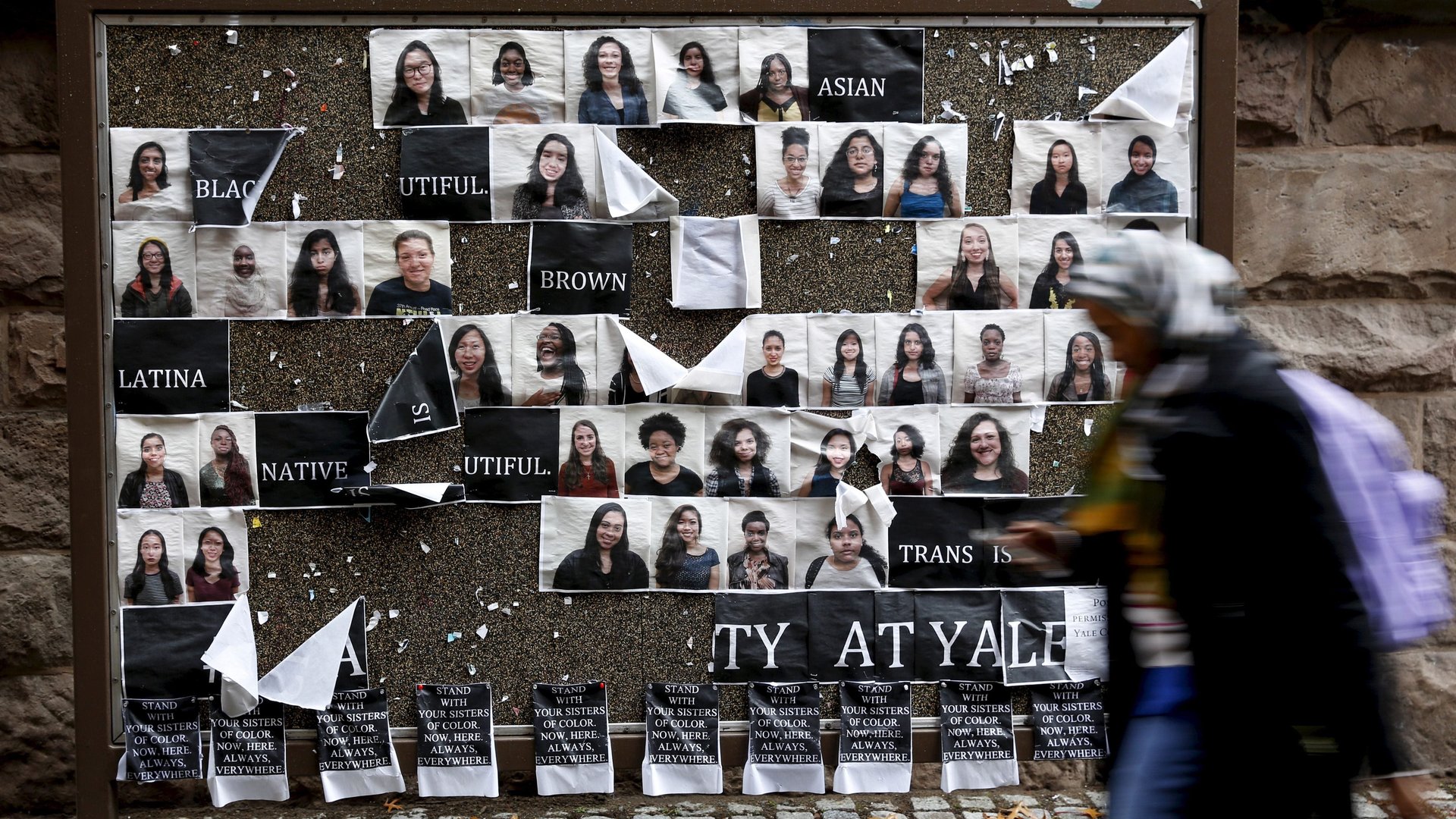Yale University is the latest subject of a US probe into race and admissions
Federal officials are investigating whether Yale University illegally discriminates against Asian-American applicants in its admissions process, according to The Wall Street Journal (paywall).


Federal officials are investigating whether Yale University illegally discriminates against Asian-American applicants in its admissions process, according to The Wall Street Journal (paywall).
The action comes after a 2016 complaint filed by a group of Asian-American organizations, led by the Asian American Coalition for Education, alleging that Yale, Brown University, and Dartmouth College discriminated in their admissions process. According to the Journal, “The probe will be conducted jointly by the Education Department’s Office for Civil Rights and the Justice Department’s Civil Rights Division, which opened its investigation into the matter this April.”
In a statement to the student body, Yale’s president Peter Salovey said: “I write now to state unequivocally that Yale does not discriminate in admissions against Asian Americans or any other racial or ethnic group.” He wrote that “Yale’s policies have resulted in an outstanding and increasingly diverse student body,” and that “The creation of a diverse academic community has not come at the expense of applicants of any racial or ethnic background.” He cited school statistics that show that in the past 15 years “the number of Asian Americans has grown from less than 14% of the incoming first-year class to 21.7% in the Class of 2022.”
The probe is part of a larger Trump administration strategy to encourage schools to adopt race-blind admissions standards, reversing Obama-era guidelines that encouraged the use of race to promote diversity, otherwise known as affirmative action. Last year, the Justice Department opened a similar civil-rights investigation into whether Harvard University discriminates against Asian-American applicants. That investigation was prompted by a suit, filed in 2014 by a group called Students for Fair Admissions, alleging that Harvard intentionally discriminates against Asian-American applicants by holding them to higher standards and by limiting the number of Asian students who are admitted. It is expected to go to trial in October.
If that case goes on to the Supreme Court, a ruling in favor of Students for Fair Admissions could upend policies at colleges and universities across the country. Many other Ivy League schools, from Princeton to Cornell, also have high numbers of Asian-American applicants but comparatively lower shares of Asian-Americans students.
The issue of affirmative action in US colleges is sure to feature prominently in the partisan battle over the confirmation of Brett Kavanaugh as the next Supreme Court justice, which to date has come to be focused on allegations of sexual misconduct. If he is confirmed, Kavanaugh’s views on affirmative action might very well swing the court for generations to come.
As the Journal has reported, those views are complicated: While “he has lamented the systemic disabilities racism has inflicted upon African-Americans,” Kavanaugh also coordinated the George W. Bush administration’s legal campaign against affirmative action by challenging admissions policies at the University of Michigan.